Google Analytics 4 (GA4) is the latest version of Google’s popular web analytics platform. It is designed to be more flexible and future-proof than its predecessor, Universal Analytics (UA). One of the new features of GA4 is the ability to track website conversions.
What Is a Conversion?
A conversion is a completed action that you want visitors to take on your website. This could be anything from making a purchase to signing up for a newsletter. Tracking conversions is important because it allows you to measure the effectiveness of your marketing campaigns and website design.
How to Set up Conversions in Google Analytics
here are two main ways to set up conversion tracking in Google Analytics 4:
1. Manually create a conversion event
This method involves creating a custom event for each conversion you want to track. This is a good option if you have a small number of conversions to track.
2. Use Google Tag Manager (GTM)
GTM is a tag management system that makes it easy to manage and fire tags on your website. You can use GTM to fire conversion events automatically without having to manually code them into your website. This is a good option if you have a large number of conversions to track.
Instructions for Manually Creating a Conversion Event
1. In your Google Analytics Google Analytics (GA4) property, go to Admin > Events.
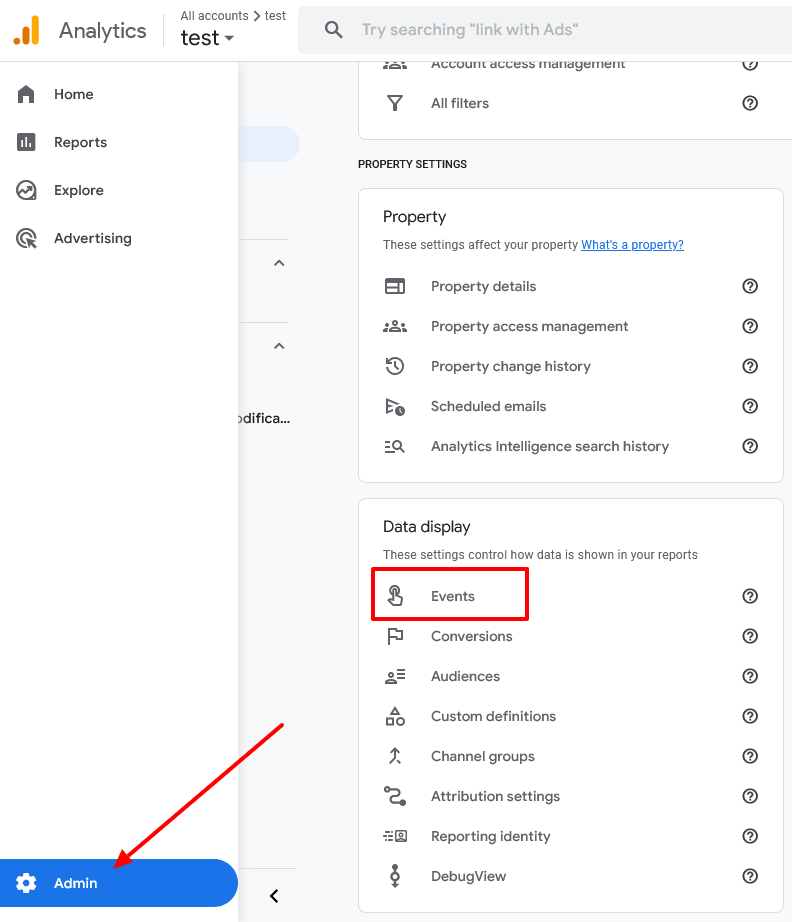
2. Click “Create event”

3. Click “Create” and you will be directed to an event creation.

4. Enter a name for your event. For example, if you want to track a form submission, you could name your event “Form_Submit”. Under Matching conditions, enter the criteria that will trigger your event. For example, if you want to track a purchase, you could enter the condition “page_view contains /thank-you.html”.
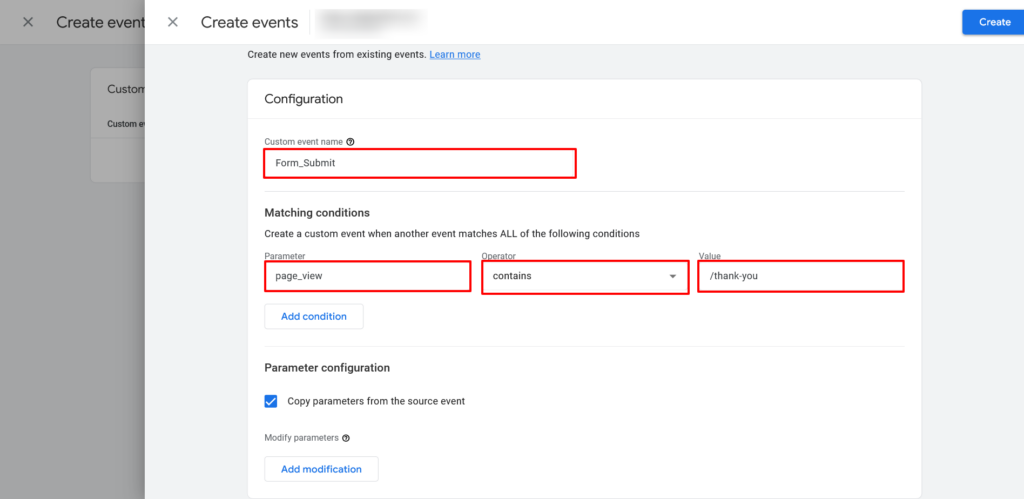
5. Click “Create”
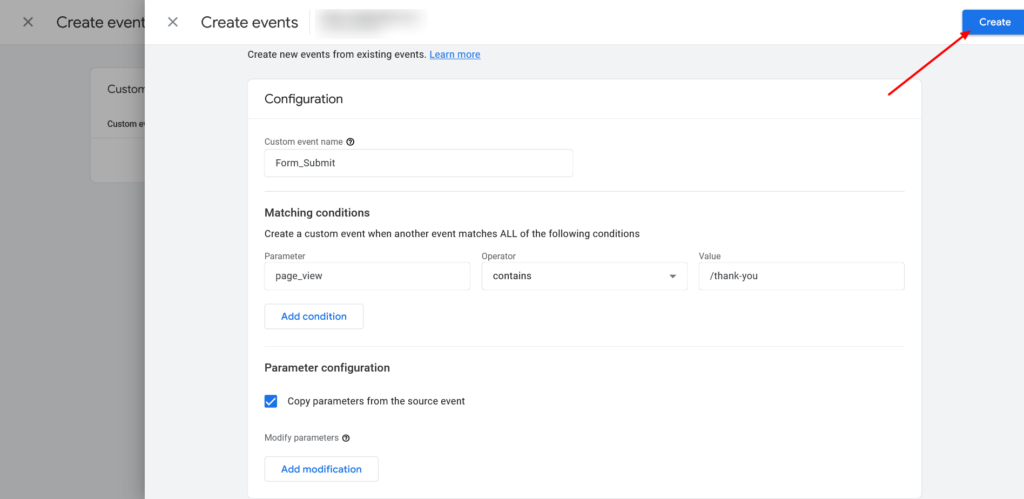
6. When the event created reflects in the existing events, just click the slider to mark it as a conversion event.

Instructions for Using GTM to Create a Conversion Event
1. Create a new tag in GTM.

2. Click on Tag “Configuration and select Google Analytics: GA4 Event” as the tag type.
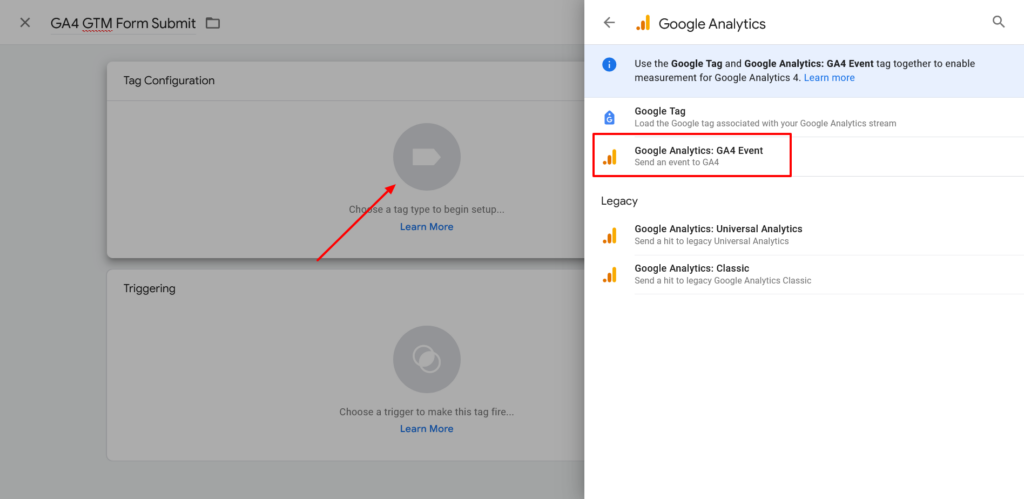
3. Configure the tag settings, including the event name and matching conditions.
Note: the measurement id is your GA4 measurement id that you want this tag to fire.
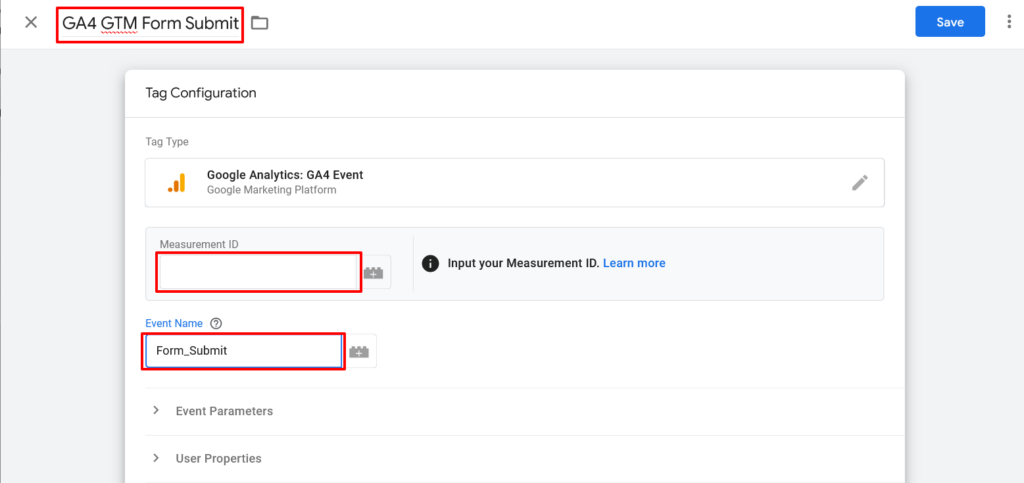
4. Add a trigger to the tag that will fire when your conversion event occurs. For example, you could create a trigger that fires when a user submits a form. Click “Save” once done configuring.

5. Add additional parameters if you want more information that GTM would send to GA4. Once done, save your tag and submit your changes to GTM.
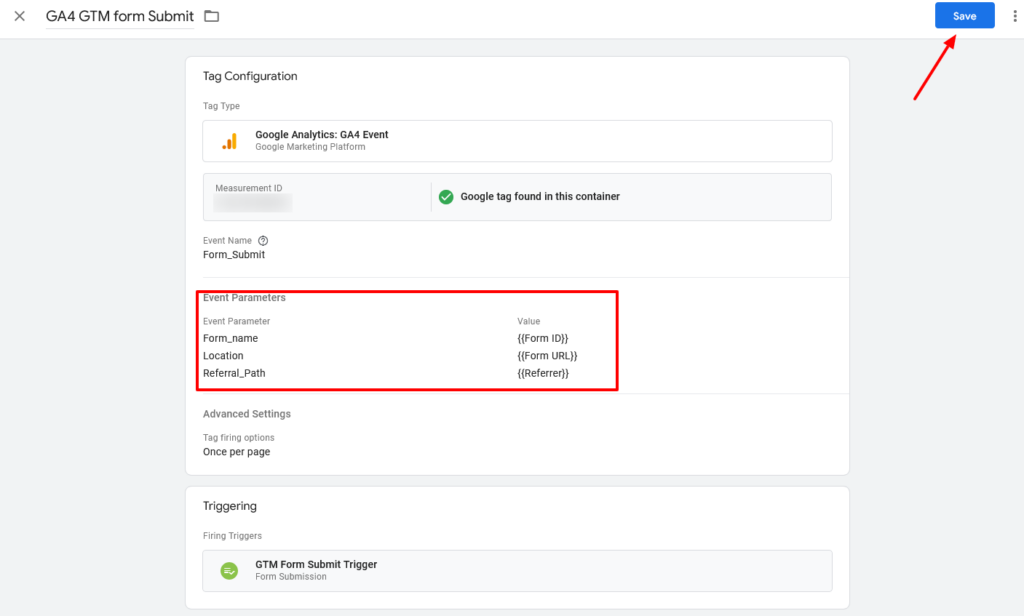

6. Wait for 24-48 hours before the event tag created in GTM would reflect in the GA4 events. Once the form submit event is reflected in the GA4 data, select it as a conversion event.

Here are some additional tips for setting up conversion tracking in GA4:
- Use a consistent naming convention for your conversion events.
- Make sure that your conversion events are firing correctly. You can use the GA4 “Debug View” tool to test your events
Conclusion
Google Analytics 4 (GA4) introduces enhanced capabilities for tracking website conversions, which are crucial actions visitors take on a website. These conversions are essential for analyzing the success of marketing efforts and website usability.




